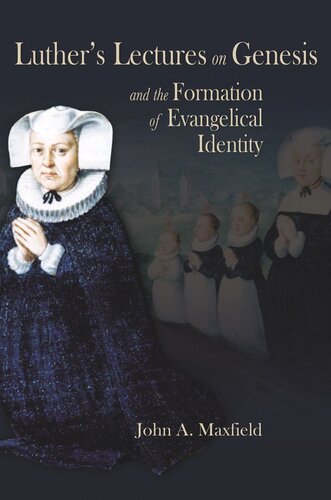

Most ebook files are in PDF format, so you can easily read them using various software such as Foxit Reader or directly on the Google Chrome browser.
Some ebook files are released by publishers in other formats such as .awz, .mobi, .epub, .fb2, etc. You may need to install specific software to read these formats on mobile/PC, such as Calibre.
Please read the tutorial at this link: https://ebookbell.com/faq
We offer FREE conversion to the popular formats you request; however, this may take some time. Therefore, right after payment, please email us, and we will try to provide the service as quickly as possible.
For some exceptional file formats or broken links (if any), please refrain from opening any disputes. Instead, email us first, and we will try to assist within a maximum of 6 hours.
EbookBell Team

4.7
86 reviewsMartin Luther's lectures on Genesis, delivered at the University of Wittenberg during the last decade of his life and later published by his students, allow modern readers to view a sixteenth-century professor engaging his students with the text of scripture and using that text to form them spiritually. The lectures show how Luther attempted to form in his students a new identity, an Evangelical identity, enabling them to make sense of the rapidly changing society and church in which they were being prepared to serve, primarily as pastors in the developing territorial churches of the Reformation.
This study uses the text of the lectures to outline the contours of the new identity that Luther laid out through his exposition of Genesis. They include how Luther approached and taught his students to perceive the text of holy scripture; how that text unveiled for Luther the nature of Christian life in the world; and how Luther taught his students to view the past, the present, and the future of the church and the world through the book of Genesis.
Whether in the published editions of the lectures the historic Luther was actually misunderstood or was transformed in some way into the prophetic Luther of later memory, the text reveals the Luther that his students heard and subsequent generations read.